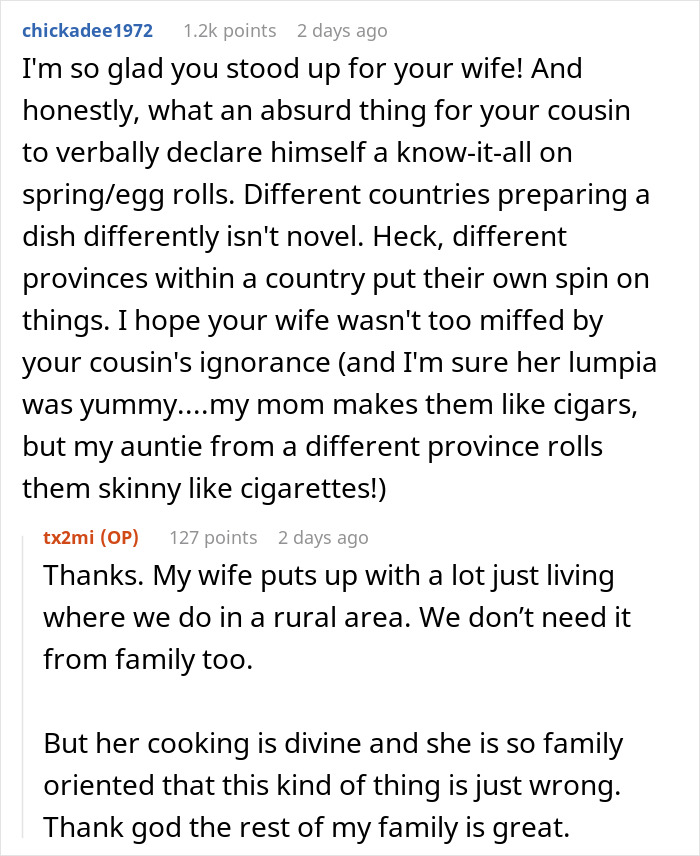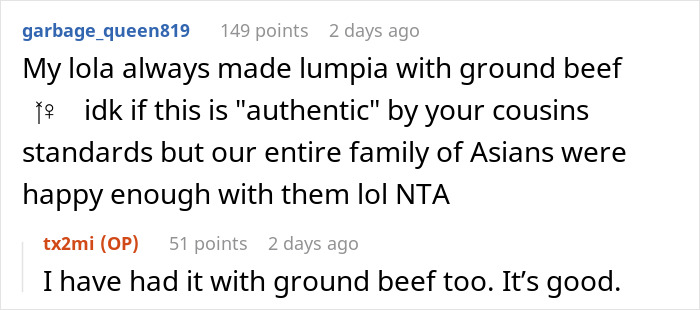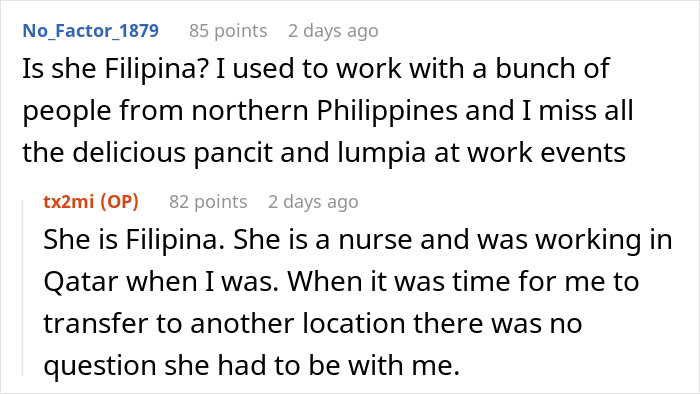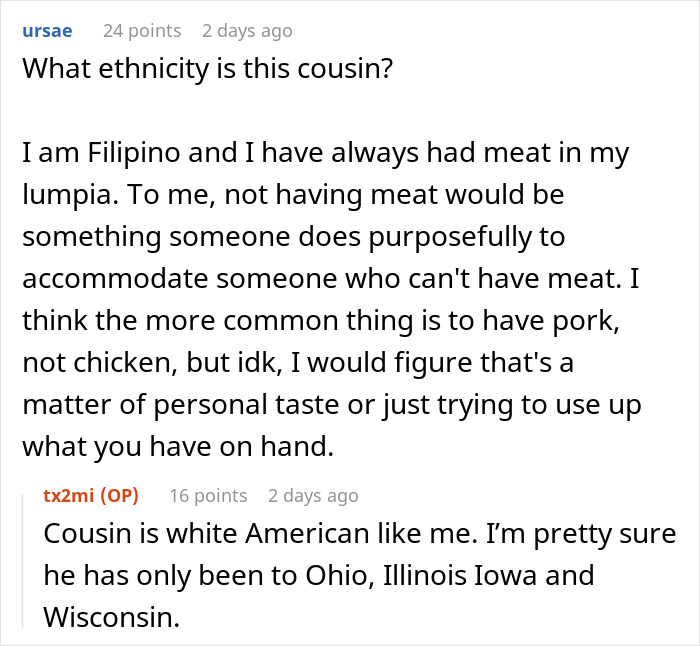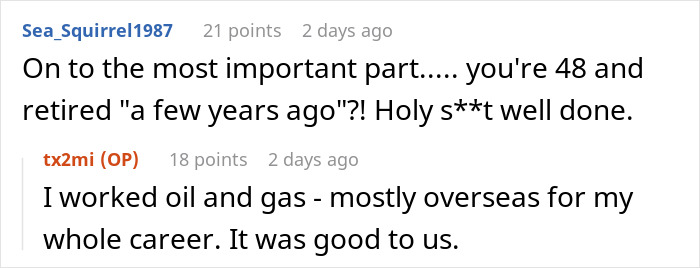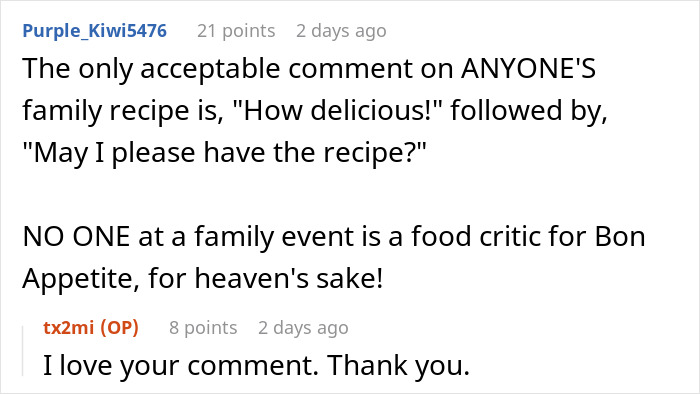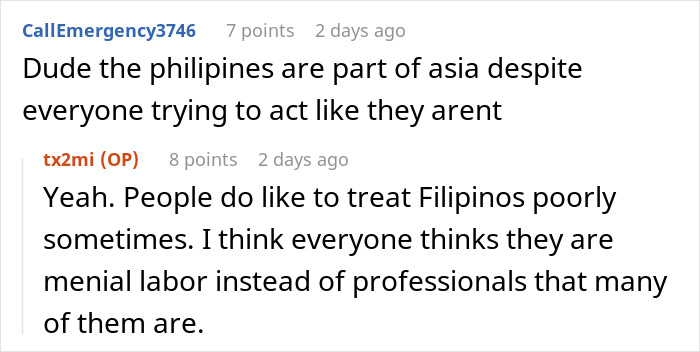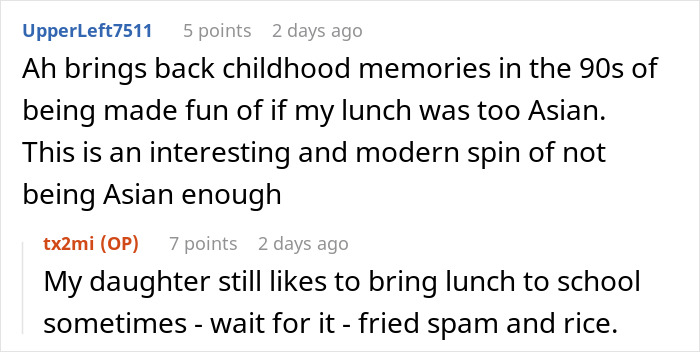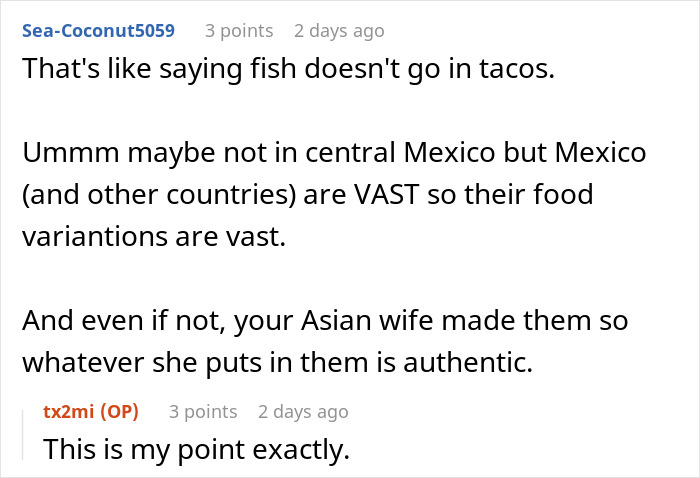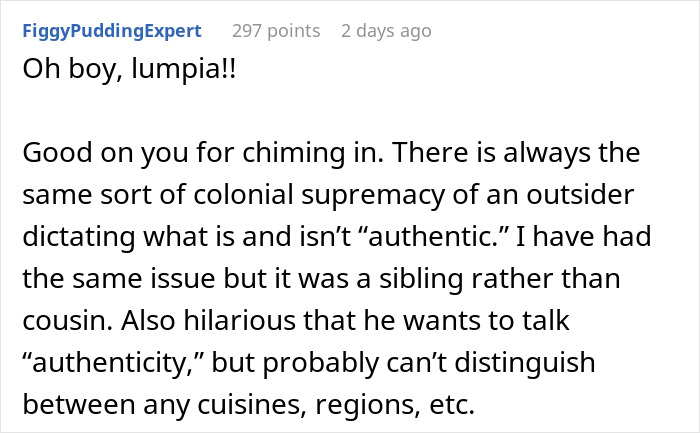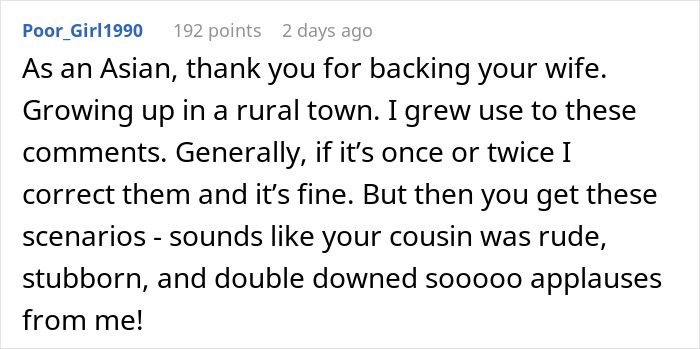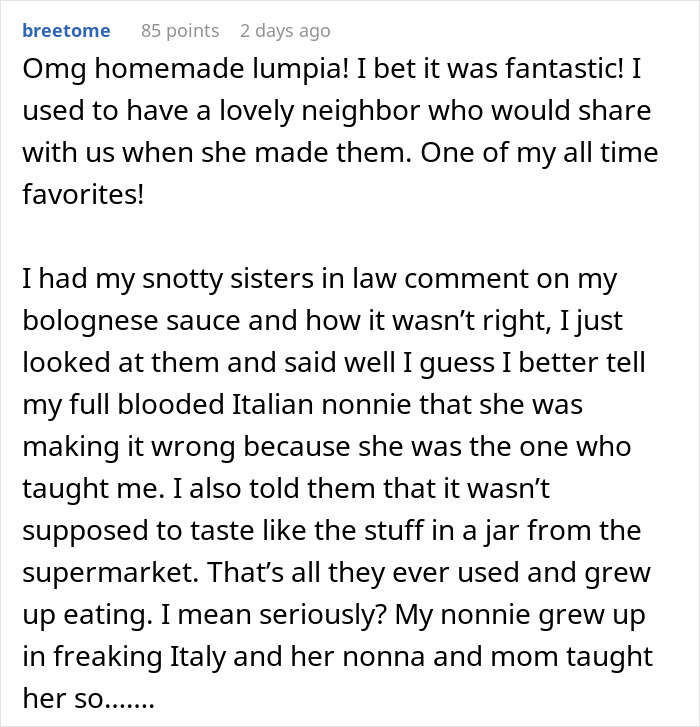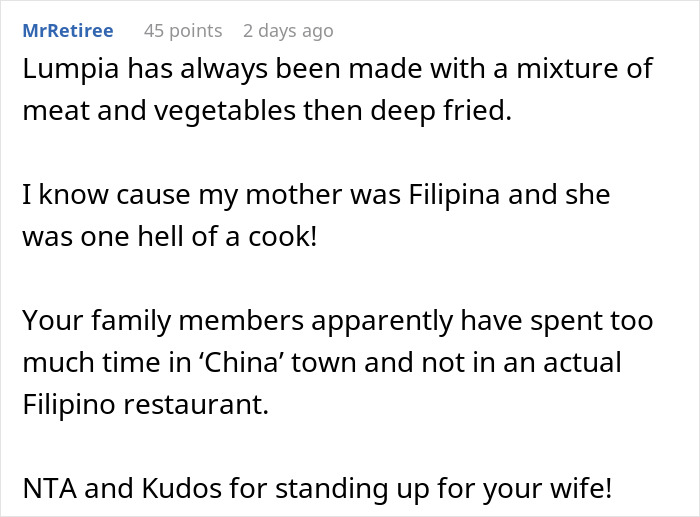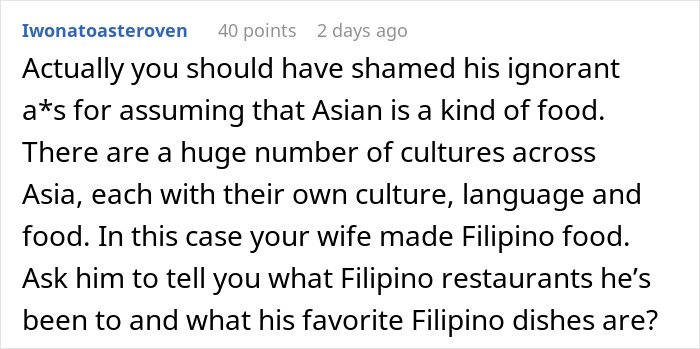It’s always nice to be appreciated for something you do well. This is especially true for cooks who spend time perfecting their skills so your meal can be as enjoyable as possible.
However, some people just can’t help but let everyone be aware that “they know better,” even if they really don’t. A great example is the cousin in this Redditor’s story, who couldn’t stop eating the poster’s wife’s cooking but didn’t shy away from loudly proclaiming that the food was not authentic. Scroll down to read the full story!
More info: Reddit
Some people like to see themselves as food experts despite having very limited knowledge of the subject

Image credits: Anna Pou (not the actual photo)
The poster’s relatives asked his Asian wife to make some of her traditional food for their family meeting, which she was happy to do
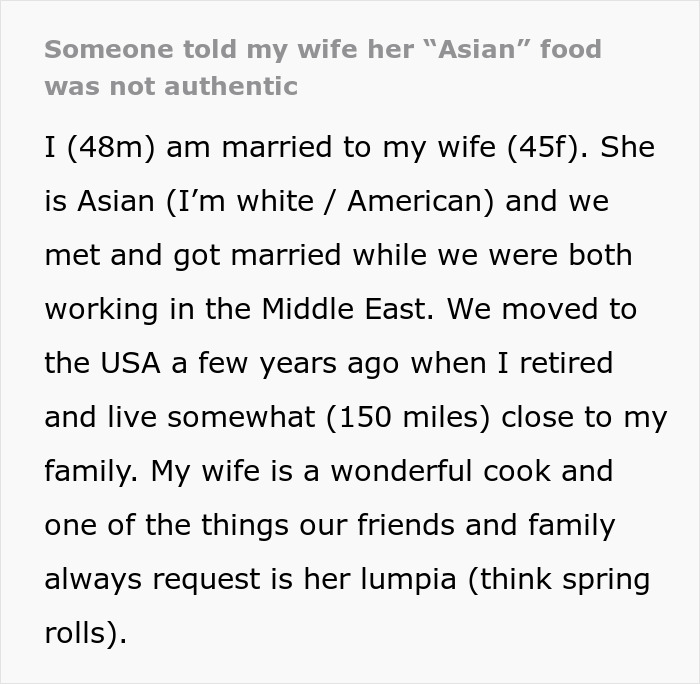
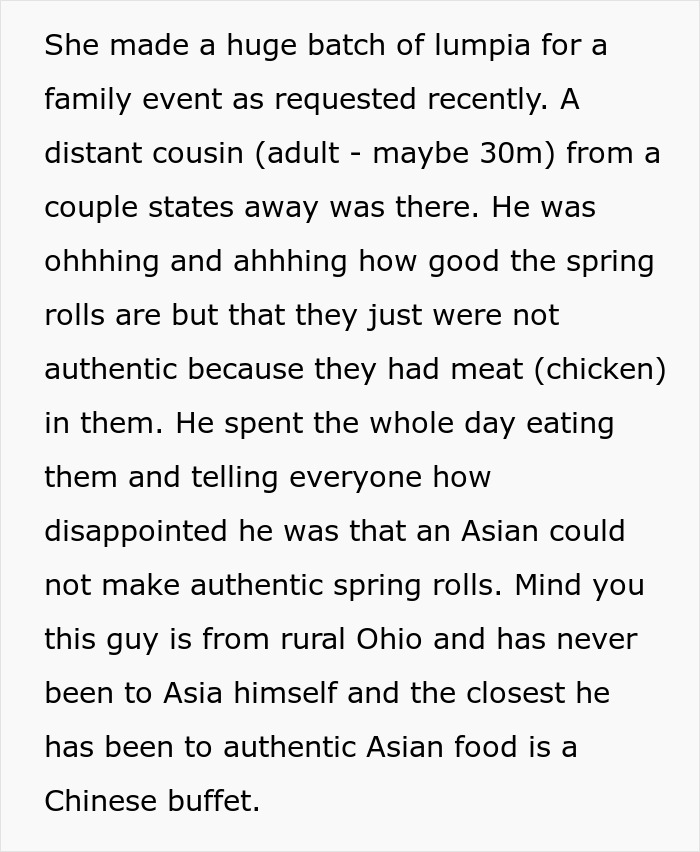

Image credits: RDNE Stock project (not the actual photo)
At the meeting, one distant cousin spent the time eating the woman’s food and loudly complaining about how disappointed he was that it was not “authentic”
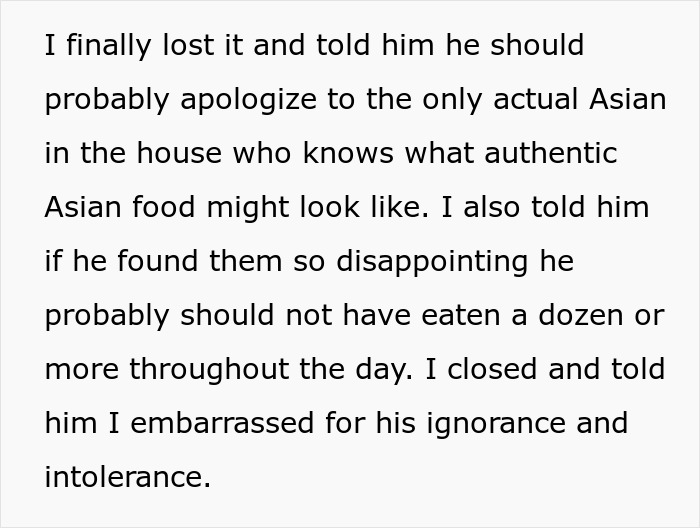
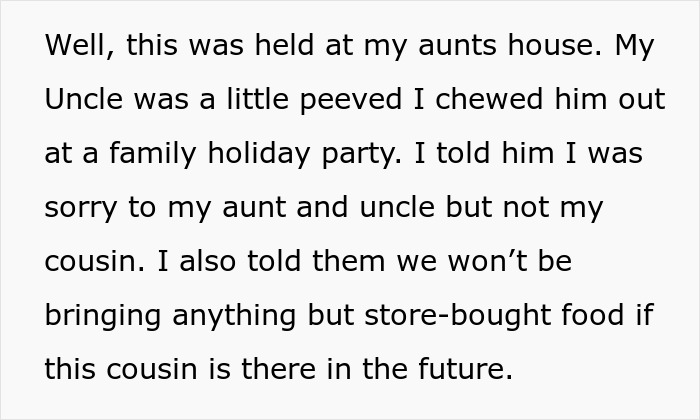

Image credits: u/tx2mi
Fed up, the poster bashed the man with words and told his relatives they won’t be bringing his wife’s homemade food anymore
The Redditor, known as u/tx2mi, is an American man married to a Filipino woman who is an excellent cook and was recently asked to make a huge batch of lumpia, a traditional dish from her culture, for the OP’s family event. Happy to do it, she cooked the food, and the married couple brought it to the gathering.
One of the family members in attendance was OP’s distant cousin. He spent the whole day eating and praising the woman’s food for its quality, but couldn’t stop telling everyone how disappointed he was that an Asian couldn’t make “authentic” spring rolls because they contained meat.
After listening to this man for a while, the OP lost it and told him what he thought of him. He demanded that the cousin apologize to his wife and said that if he found the food so disappointing, he shouldn’t have eaten so much of it.
While the author himself later apologized out of respect for his aunt and uncle, he added that he and his wife wouldn’t bring any more homemade food to any other family events if the cousin in question was involved.
The commenters praised the OP for standing up for his wife and shamed the cousin for his misbehavior. Some people, who are Asians living in the USA themselves, even thanked him for this act as they admitted that they have had to endure similar scenarios way too often.

Image credits: Angela Roma (not the actual photo)
There’s no excuse for the cousin’s behavior, especially when, according to the OP, he has only ever eaten Asian food in a Chinese buffet yet pretends to be an expert. After all, you don’t even have to leave the country to do it.
For example, Chris Cho, an American Korean chef who Bored Panda reached out to for an interview, runs two great restaurants in Philadelphia, which serve some of the best Korean food right there in the USA!
“I always tell people I was born in Korea, braised in Philly,” said Chris Cho, who grew up in a Korean family of chefs. Now, owning two restaurants, the chef is incredibly happy to be able to represent two of the things he loves the most – Korean food and Philadelphia.
But while Chris Cho is primarily a chef, he’s also a popular social media figure with millions of followers. “When the pandemic hit, I gave all my schedule to all my staff,” said the cook. “I knew that if I actually worked in the kitchen, at least two people were going to have to lose their jobs.”
Being out of the kitchen, the chef realized that he was left with more free time on his hands than he knew what to do with. So, to pass the time, the man started posting various food and restaurant-related videos online, which, to his surprise, received quite a lot of attention.
Seeing a lot of positive feedback while at the same time understanding the problematic situation that a lot of his viewers were in during the coronavirus crisis, Chris Cho started making even more content. He made videos funnier and chose to use recipes that didn’t require ingredients people didn’t already have at home, making it easy to make something delicious without going to the store.
It didn’t take long for the man to gain tons of recognition online. But his motives didn’t change. “I just want to send people nothing but good and positive energy into the crazy that we live in,” said the chef while philosophizing that the way food brings us together might just be our best shot at ending racism.
When asked about the most rewarding part of his job, the chef answered that it’s seeing people try Korean food for the first time and being a representative of it. “A lot of times in America, when people are trying Korean food for the first time, it can be very uncomfortable,” said Chris Cho, explaining why he finds giving his customers the best experience possible so important.
He concluded by saying that to him, running these restaurants and representing Korean culture sometimes feels like being an Olympic athlete representing his country. And so, he couldn’t be happier seeing all these beautiful memories being made in the place he created.

Image credits: cottonbro studio (not the actual photo)
But no matter how good the dish is, it would be difficult to find a real chef who would call their food “authentic.” According to the Plant Base, calling it that way is, at the very least, problematic, and there’s a good explanation for it.
When it comes to food, authenticity doesn’t mean anything. It’s often applied to what’s often referred to as ethnic cuisines. But no single restaurant or entity can own a culture. There are plenty of styles in which a dish can be prepared based on the region and the ways used there, but every single one of them is as authentic as the other.
The same goes for some other words often used when talking about food. Calling a dish exotic or ethnic also gets you nowhere and, in addition, is borderline racist. All foods are created by people that belong to some culture, which are scattered all around the world, so applying it only to non-white cultures really doesn’t bode well.
There are some other ways in which people like to describe food that don’t really make that much sense. For example, saying the food is guilt-free is only feeding the stigmas and promoting body shaming and a toxic diet culture. And cruelty-free food is rarely accurate either, as most of these processes involve a lot of labor. Just because no animals were hurt doesn’t mean there was no cruelty.
And last but not least, calling the food clean. In addition to triggering guilt, shame, and distorted body image, this usually applies to upper-class dishes, implying that if this is clean, then everything else is dirty. It basically says that everyone who can’t or doesn’t eat this is somewhat inferior, and that’s just plain wrong.
Ultimately, nowadays, it seems like there are way too many tags when it comes to what we eat. Rather than enjoying the tasty meal that they get, some people are a lot more interested in being able to say that they ate something “authentic,” “exotic,” or “guilt-free” without even realizing what they’re actually saying.
However, this doesn’t mean that dishes prepared using recipes from different cultures should all be regarded as the same thing. It just pays to remember that we should eat and enjoy our food, not the labels stuck on it. Because, as Chef Chris Cho said, it’s what brings people together.
Redditors commended the author for standing up for his wife and agreed that the cousin was a jerk
